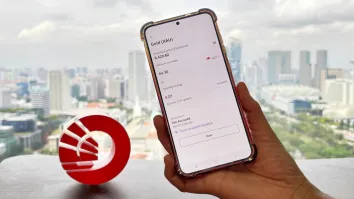Dr. Holger Kern, Deloitte Consulting
By Holger KernShrinking spreads in the region have retail bank franchises engaging in a battle for deposits and running into significant headwinds. As the cost of funding increases, analyzing the underlying cost of acquisition is just one area that retail banks can explore in their quest to reduce the cost of funding (which vary by the kinds of client groups the bank serves and the associated costs of distribution.)
Now is the time for banks to take a critical look at their value chain – sales, products and infrastructure – to increase their understanding of the underlying drivers for low cost funding in existing and new customer markets. As the current economic crisis demands changes from the banking industry, looking to other asset intensive sectors such as Airlines and Retail may offer banks the opportunity to focus on the key principles of “return of the sachets” and “low cost distribution strategy”.
“Return of the sachets” – all good things come in small packets.
This is one of the fundamental mantras of retail businesses as they focus on “mass-market” client groups. FMCG and telecom businesses over the years have successfully customized their products and distribution approaches to be easily absorbed by mass market clients, e.g. small buckets of prepaid minutes sold by telecom businesses can be purchased either at own/third-party stores or can be exchanged between clients.
Mass-market clients in retail banking are known as a high cost, low margin segment and have largely been neglected. Retail banks have not done a good job in developing products or customizing their sales approaches, i.e. to promote peer to peer lending along with micro financing where they can generate fees like payment companies do through on-net transactions. Retail banking franchises should leverage on lessons learnt by other industries to develop “sachet”-like products, which will help mass-market customers gain micro-assets and micro-liabilities.
Low cost distribution strategy
Very few asset intensive businesses own all of their distribution channels – banks however still try to hold on to all of them. Slowly, banks in the region are trying to look at ways to shrink their balance sheet exposure by developing new channels (e.g. private label online aggregation channels) or letting third parties own certain channels (e.g. ATM networks). The insurance industry – usually very slow in picking up broader trends – is a very good example: insurers utilize worksite marketing as a channel to target certain client groups and some of them do a great job in cross-selling multiple products. Banks however tend to believe that owning the channels will give them better control. Retail franchises should consider developing low cost channels by either outsourcing channels to third-party suppliers or by customizing them to the needs of specific client groups – which should go way beyond the currently used liquid financial asset segmentation that retail banks use – thereby ensuring a higher return on the underlying assets.
Retail banks in this part of the world must seriously look at how other industries tackle these challenges as they try to lower their cost of funding. Focusing on specific client groups within the mass-market segment and delivering “micro” products through their own as well as third-party low cost distribution channels is an excellent start.



















 Advertise
Advertise












